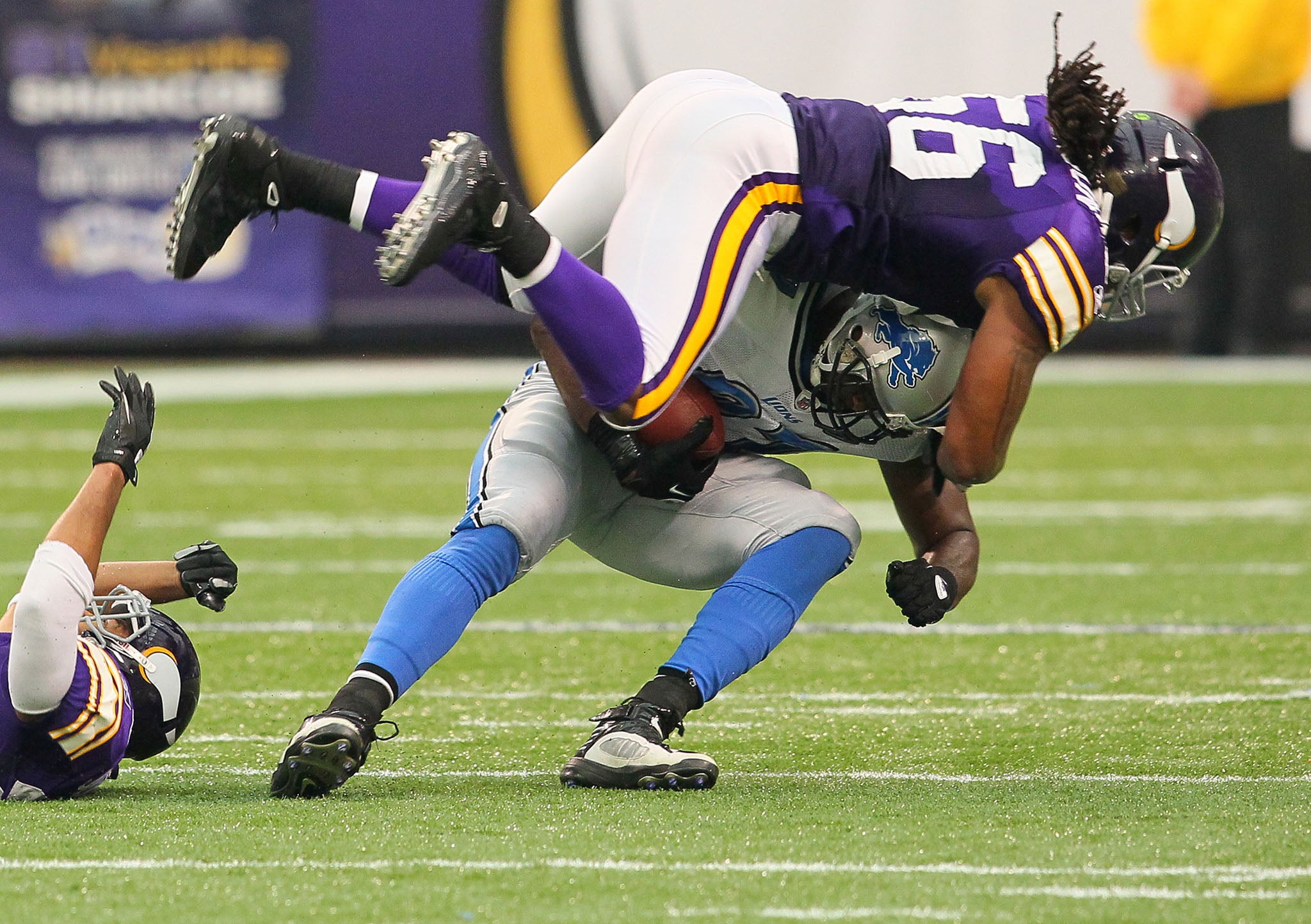The Independent's journalism is supported by our readers. When you purchase through links on our site, we may earn commission.
Big hits are what makes the NFL great
Crown tackles, a pleasure to watch, have been outlawed by the game's rule-makers


Your support helps us to tell the story
From reproductive rights to climate change to Big Tech, The Independent is on the ground when the story is developing. Whether it's investigating the financials of Elon Musk's pro-Trump PAC or producing our latest documentary, 'The A Word', which shines a light on the American women fighting for reproductive rights, we know how important it is to parse out the facts from the messaging.
At such a critical moment in US history, we need reporters on the ground. Your donation allows us to keep sending journalists to speak to both sides of the story.
The Independent is trusted by Americans across the entire political spectrum. And unlike many other quality news outlets, we choose not to lock Americans out of our reporting and analysis with paywalls. We believe quality journalism should be available to everyone, paid for by those who can afford it.
Your support makes all the difference.Rugby-loving men of the UK are always keen to tell any American football player they meet that, because athletes of the sport wear pads, they’re wimps. “The sport isn’t as violent as rugby”, they say, “the hits aren’t as hard”. Simply put, the latter is scientifically false (and as someone who’s played both sports, I can confirm this); however, America’s National Football League may be slowly proving British blokes right.
Yesterday the NFL approved several new rules for the 2013 season – including one that will penalise its players for tackling each other using the crown of their helmets. The move is aimed at improving player safety, and is a direct response to the intimidating 4,000+ lawsuits the NFL is facing from former players who say that league safety rules have left them suffering from long-term head trauma.
Having suffered well over the doctor-recommended cap of yearly concussions myself (thanks to American football), it’s not hard to empathise with those now left with life-long disability because of their involvement in the game. But is their condition reason enough to change the game so significantly?
It’s one thing to worry about children playing the sport – even President Obama said earlier this year that, if he had a son, he’d “have to think long and hard before I let him play football”. Yet where adults are concerned, American football players should know what they’re getting into.
Any contact sport comes bound to a risk of long-term physical ailments, and it’s that very violence that attracts many to play in the first place. For NFL players the increased likelihood of head trauma down the road should be an acceptable trade-off for a career in the spotlight as a modern-day gladiator.
Consider the legend of Dr Death, a 1970s safety for the Oakland Raiders who hit players so sadistically they would literally run towards their own end zone just to avoid him. The level of on-field brutality expressed by the Dr personified the sort of blood-and-guts displays for which mankind has long thirsted. That’s what American football is all about – and it seems the billionaire owners of the NFL risk forgetting that.
Moreover, the NFL’s move to water-down the violence of its trade has been lambasted by players. According to Hall of Fame running back Marshall Faulk – who took more than a few crown tackles in his time - outlawing this kind of hit will not only make the game look wimpier, but will actually put players in even more danger by forcing them to run into tackles chin-up.
But regardless of whether this new rule will actually protect players, it’s hard to see any of the NFL bigwigs changing their minds. Still, they should know their decision comes at a cost: not only are they banning one of the most brutal – and subsequently, most entertaining – aspects of the game, but rules like this also serve to ensure that Americans abroad will continue getting abuse in British pubs for watching a “powderpuff” sport. If the game keeps heading in its current direction, there may be more truth in these taunts than Americans would care to admit.
Join our commenting forum
Join thought-provoking conversations, follow other Independent readers and see their replies
Comments